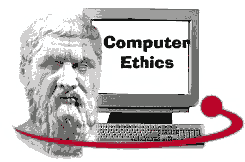Questions for the Midterm Exam
www.findsomeromance.com, www.filipinaeyes.com Sounds familiar? Browsing at web page that lines up photo of young filipinas that looks for sale like hotcakes and fries?
There are many ethical questions that arise with the rapid growth of the "mail order bride" industry in cyberspace. The booming growth of these companies on the Web and the potential for abuse has gone unnoticed by law makers
"Mail order bride" companies or companies of similar nature have taken to the Internet in recent years, which now constitutes a multi-million dollar industry. The Internet, with over 25 million users, has helped numerous men find wives. The worst case maybe will be the so-called "female escorts" that borders prostitution and pornography. Many people claim that it has opened the doors to increased prostitution, slavery, exploitation and global trafficking especially in women.
What are the ethical issues that seem to enslave this growing industy?
Is there much of a difference between the mail order brides industry or companies that provide escort services versus meeting someone over the Internet in a chat room?
Does this industry differ much from arranged marriages that take place in some cultures?
Or in the case of "female escorts", does this differ from prostitution?
By drawing out ethical principles your have learned as well the our current IT laws, Discuss
your opinion about these ethical questions raised.
There are many ethical questions that arise with the rapid growth of the "mail order bride" industry in cyberspace. The booming growth of these companies on the Web and the potential for abuse has gone unnoticed by law makers
"Mail order bride" companies or companies of similar nature have taken to the Internet in recent years, which now constitutes a multi-million dollar industry. The Internet, with over 25 million users, has helped numerous men find wives. The worst case maybe will be the so-called "female escorts" that borders prostitution and pornography. Many people claim that it has opened the doors to increased prostitution, slavery, exploitation and global trafficking especially in women.
What are the ethical issues that seem to enslave this growing industy?
Is there much of a difference between the mail order brides industry or companies that provide escort services versus meeting someone over the Internet in a chat room?
Does this industry differ much from arranged marriages that take place in some cultures?
Or in the case of "female escorts", does this differ from prostitution?
By drawing out ethical principles your have learned as well the our current IT laws, Discuss
your opinion about these ethical questions raised.



